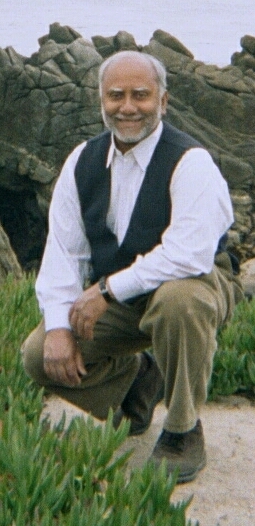Pages from a Personal History of the Bay Area
How I came to describe homeless persons as:
America's Frontline People
It was the mid-1990s. I had come armed with an array of statistics on who our homeless clients were at the nonprofit agency that I headed--the Jobs for Homeless Consortium, a national leader in the field of homeless training and employment.
I was ready to shoot numbers at them about the variety of backgrounds and skills our clients possessed along with their current challenges.
I peered into the room and saw an America of concerned young people. "It won't work," I told myself. "Even at their retentive best, the numbers will be lost a few minutes after I utter them."
Would the statistics help them understand that one of our clients had worked on the space project? That others had fought and bled on foreign battlefields in answer to America's call? That their skills, assets, and experiences were many and diverse?
I had to do better for our clients than be a spouter of data that would erase any interest in their many hidden narratives.
Our clients' stories were far too important--as were what they had done and what they had to offer America--to be buried under a mass of client census information.
If that happened, everyone--our clients, the audience, and America--would be the loser. For, as in other areas of civil society, private perceptions mould public discourse and action.
My task was set. I had to bring home to them what I had learned in my daily interaction with homeless persons.
I started scribbling furiously. Out of those moments came the following introductory word picture (which has been subjected to some grammatical refinements). I believe it had a strong impact.
Who Are Our Homeless Clients?
They have fought our wars
And kept our fragile peace;
Built our bridges,
Roads, houses, hospitals,
And offices;
Driven our trucks and buses;
Grown, harvested, prepared,
And served our food;
Worked in our factories;
Written our poems;
Played or sung our songs;
Kept our books;
Taught and raised our children;
Nursed us and provided care
When we couldn't care for ourselves;
Built our space ships
And high-tech toys . . .
America's Frontline People.
__________________________
You are invited to visit
New River Free Press International's
Career Visions for a Small PlanetCheck Out the Visions of
People Remaking Our Planet
Issue #1: Valerie Street
Issue #2: Hong Hunt
Issue #3: Ian C. Dawkins Moore
Issue #4: Peter Lee Kline
Issue #5: Ralph Dranow
Issue #6: Joseph Kaval
Issue #7: Quentine Acharya
Issue #8: Narendra Jadhav
Issue #9: Trash Pickers of Grand Rapids
Issue #10: Amanda Gerrie
And the following
Popular History Pages
/housing-conspiracies-michigan/
/open-housing-grand-rapids-1976/
/cities-survival-william-thrall/
/faith-society-father-ed-monroe/
/faith-society-praying-polish/
/zoo-cruelty-animals-michigan/
/food-coops-for-a-small-planet/
____________ * ____________
A Grand Rapids Popular History
Pages from New River Free Press, 1973 to 1977
Your Friendly Guide to Urban Survival & Improvement:
grhistory.blogspot.com/
An avid reader's comment about
Michael Chacko Daniels'
handcrafted books:
they look like little treasures."
--Brenda Coleman
a work of art in itself.


